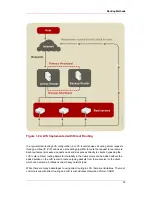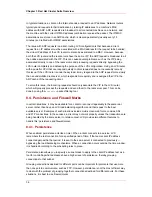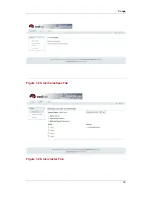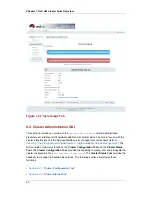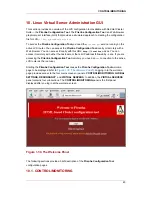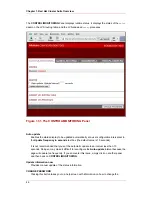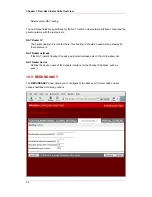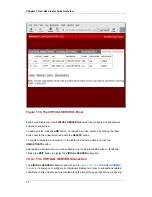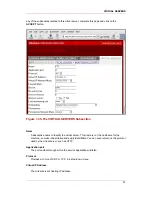
8.4.2. Firewall Marks
Firewall marks are an easy and efficient way to a group ports used for a protocol or group of
related protocols. For example, if LVS is deployed to run an e-commerce site, firewall marks can
be used to bundle HTTP connections on port 80 and secure, HTTPS connections on port 443.
By assigning the same firewall mark to the virtual server for each protocol, state information for
the transaction can be preserved because the LVS router forwards all requests to the same real
server after a connection is opened.
Because of its efficiency and ease-of-use, administrators of LVS should use firewall marks
instead of persistence whenever possible for grouping connections. However, you should still
add persistence to the virtual servers in conjunction with firewall marks to ensure the clients are
reconnected to the same server for an adequate period of time.
9. Cluster Administration Tools
Red Hat Cluster Suite provides a variety of tools to configure and manage your Red Hat Cluster.
This section provides an overview of the administration tools available with Red Hat Cluster
Suite:
•
Section 9.1, “Conga”
•
Section 9.2, “Cluster Administration GUI”
•
Section 9.3, “Command Line Administration Tools”
9.1. Conga
Conga is an integrated set of software components that provides centralized configuration and
management of Red Hat clusters and storage. Conga provides the following major features:
• One Web interface for managing cluster and storage
• Automated Deployment of Cluster Data and Supporting Packages
• Easy Integration with Existing Clusters
• No Need to Re-Authenticate
• Integration of Cluster Status and Logs
• Fine-Grained Control over User Permissions
The primary components in Conga are luci and ricci, which are separately installable. luci is a
server that runs on one computer and communicates with multiple clusters and computers via
ricci. ricci is an agent that runs on each computer (either a cluster member or a standalone
computer) managed by Conga.
Cluster Administration Tools
37
Summary of Contents for CLUSTER SUITE FOR ENTERPRISE LINUX 4.7
Page 4: ...Red Hat Cluster Suite Overview ...
Page 6: ...vi ...
Page 19: ...Figure 1 4 Power Fencing Example Fencing 9 ...
Page 21: ...Channel Connections Figure 1 6 Fencing a Node with Dual Power Supplies Fencing 11 ...
Page 34: ...Figure 1 17 Conga LVM Graphical User Interface Chapter 1 Red Hat Cluster Suite Overview 24 ...
Page 49: ...Figure 1 25 luci homebase Tab Figure 1 26 luci cluster Tab Conga 39 ...
Page 76: ...66 ...
Page 78: ...68 ...













